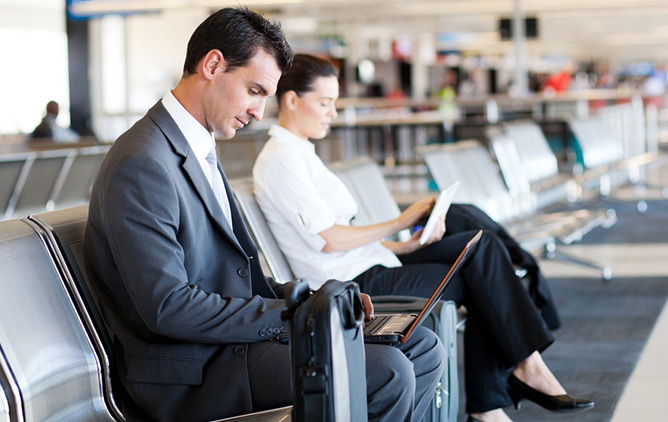Report shows business travelers are more likely to be mugged of valuable private and corporate data than of their travel money, and yet their indiscriminate behavior while online, particularly among senior executives, is playing into the hands of cybercriminals.
15% of survey respondents from South Africa have been a target of cyber-crime while abroad, rising to 20% of senior business managers. At the same time, globally, half of people traveling for work (54%), and up to 62% of senior executives, make no distinction between their behaviors when abroad, despite the fact they are a long way from the security of their work communications networks, and they are handling employers’ confidential data at work.
The study from Kaspersky Lab polled 11,850 people from across from across the world. It found the pressure from work to get online is clouding the judgment of business travelers when connecting to the Internet.
47% of South Africans in senior roles say they try to log on as quickly as possible upon arrival abroad because there is an expectation at work that they will stay connected. By the time business travelers reach the arrivals terminal, one in six globally is using their work device to get online.
Almost half (42%) of local senior managers and approximately 38% of mid-level managers use unsecure public access Wi-Fi networks to connect their work devices when abroad. At least 54% and 47%, respectively use Wi-Fi to transmit work emails with sensitive or confidential attachments.
One reason business travelers are doing so, the report finds, is a widely held assumption their work devices are inherently more secure than private communications tools, regardless of their connectivity. 47% locally expect their employers to have set strong security measures. This is most pronounced among business leaders 51% and mid-level executives 45%.
49% think that, if employers are to send staff overseas, they must accept any security risks that go with it. But a large proportion of business travelers, and particularly business leaders, are not helping with their indiscriminate behaviour when abroad.
17% of local senior executives admit to using work devices to access websites of a sensitive nature via Wi-Fi – compared to an average 13%. 37% have done the same for online banking – compared to an average of 24%.
“This report shows us that cybercrime is a real hazard while traveling, and employees are putting confidential business information at risk. The insight provided by the report should be a red flag for corporate information security specialists, as the business travel behaviour we have unearthed here presents a significant corporate data protection challenge. It’s now up to businesses to respond with appropriate security solutions, if they wish to protect themselves.”




